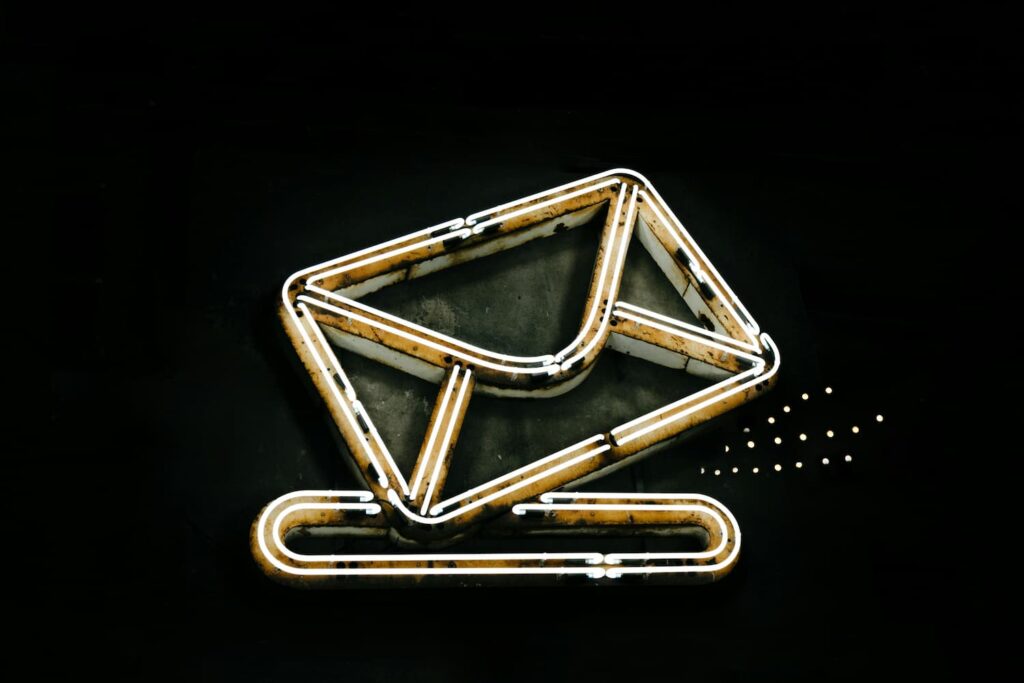In today’s business-oriented academic world, students in Betriebswirtschaftslehre (BWL) are expected to do more than understand economic theory—they’re also required to master the art of professional communication. Among these communication forms, writing academic emails is a vital but often overlooked skill. Whether reaching out to professors, administrative staff, or project collaborators, how a student presents themselves in an email matters significantly. Many struggle with tone, clarity, or structure, leading to unnecessary misunderstandings or lost opportunities. In some cases, BWL students turn to external support to refine their writing—and yes, a Ghostwriter BWL can offer valuable input not only for academic papers but also for improving email etiquette. This article explores how to communicate more effectively via email—and when it might make sense to get professional assistance.
Why Academic Emails Deserve More Attention
An email is often your first impression—your handshake across the screen. In the academic context, it’s a tool for requesting meetings, clarifying assignments, applying for internships, or negotiating deadlines. In BWL studies, where efficiency, clarity, and professionalism are part of the curriculum, your email is part of your personal brand.
Sending an email that lacks detail, structure, or formality can harm your academic relationships. Professors and administrators deal with hundreds of messages weekly. A sloppy or confusing message may not only go unanswered—it can damage your reputation.
Core Elements of a Well-Written Academic Email
Academic emails, especially in business studies, should follow a structured and respectful format:
- Begin with a professional salutation, such as “Dear Professor Schmidt” or “Hello Dr. Klein.”
- Clearly state the reason for your email in the opening lines.
- Use short paragraphs to explain your situation or request.
- Provide relevant context (e.g., course title, deadline).
- End with a courteous closing, such as “Thank you for your time” or “Best regards.”
- Include your full name and matriculation number at the end, especially in formal communication.
Every detail adds to your credibility and saves time for the person reading.
Common Mistakes BWL Students Make in Emails
Even the most talented students often make errors in email communication. Here are some frequent issues:
- Too informal: Emails that start with “Hi” or include casual language like “I dunno” look unprofessional.
- Unclear purpose: If the reader can’t immediately understand why you’re writing, your message may be ignored.
- Poor subject lines: “Help needed” or “Question” are vague—always specify, e.g., “Clarification Request for BWL302 Assignment.”
- No context: Mentioning a “group project” without specifying the course or professor is confusing.
- Lack of courtesy: Demanding tone or abrupt language reduces the likelihood of a positive response.
Being polite, clear, and specific is not just good etiquette—it’s a BWL skill.
Academic and Business Emails: Two Styles to Master
In BWL programs, students communicate in two parallel worlds: the academic and the professional. While both demand a formal tone, they differ in expectations.
Academic emails are usually sent to university staff and deal with coursework, deadlines, and academic concerns. These require deference, clear structure, and full context.
Business-oriented emails, such as internship applications or correspondence with external companies, are more action-focused. They still require clarity and professionalism but might allow slightly more direct language.
Mastering both types ensures you’re ready for both university and workplace communication.
How a Ghostwriter Can Support Your Email Writing
Though the term “ghostwriter” is typically associated with academic papers or theses, a Ghostwriter BWL can be a valuable partner in other areas—such as developing high-impact academic communication skills. Here’s how:
- Email editing and feedback: Before sending an important message, a ghostwriter can help refine the language, structure, and tone.
- Template creation: If you frequently send similar requests, it helps to have polished templates. A ghostwriter can create customized versions for office hour bookings, thesis proposals, or recommendation letters.
- Language support: For non-native speakers or bilingual students, switching between English and German in emails can be tricky. A ghostwriter experienced in academic writing can help with the proper tone and grammar in both languages.
- Coaching: Over time, students who work with a ghostwriter learn to write better themselves by seeing how their drafts are improved.
When to Consider External Help for Email Writing
Not every email justifies the use of a professional, but certain moments in your academic journey are critical enough to warrant extra support:
- Applying for internships or exchange programs: These emails are your first professional impression. Clarity and impact are crucial.
- Reaching out to potential thesis supervisors: A thoughtful, organized message can mean the difference between being accepted or ignored.
- Requesting deadline extensions or grade appeals: Sensitive topics require careful, respectful language.
- Asking for letters of recommendation: Your email should reflect gratitude, clarity, and purpose.
- Collaborating in multilingual teams: Language support helps prevent misunderstandings in international environments.
In these situations, even a short email can have long-term consequences.

Before and After: A Practical Example
Unpolished Email:
Hi,
I don’t understand the paper. Can you help?
Thanks,
Max
Why This Fails:
- It lacks a greeting and academic title.
- There is no subject reference or context.
- The tone is too casual and vague.
Rewritten Version:
Subject: Question Regarding Submission for BWL201
Dear Professor Weber,
I hope you are well. I am currently preparing the final paper for BWL201 and would appreciate your clarification on the citation requirements. Should we follow APA style or the university’s own guidelines?
Thank you in advance for your time.
Best regards,
Max Bauer
Matriculation No. 4012563
This version is clear, respectful, informative, and structured—all qualities that build trust and encourage responses.
Email Tone and Cultural Awareness
BWL students often study in international settings. Whether you’re writing to a German-speaking professor or a foreign partner university, cultural tone matters:
- In German-speaking academia, structure, respect, and title use are very important. Always use “Herr/Frau Professor Doktor” unless advised otherwise. Keep sentences formal and avoid emotional expressions.
- In English-speaking settings, you can allow for slightly warmer tones like “I hope you’re doing well” or “I look forward to your feedback,” but professionalism remains key.
Being culturally aware adds polish to your communication and avoids unintended offense.
Do You Really Need a Ghostwriter for Emails?
For everyday communication, probably not. But for strategic moments in your academic path, using a ghostwriter is not just about outsourcing—it’s about learning. Seeing how a professional refines your draft teaches you what to look out for and how to structure your own communication better in the future.
A Ghostwriter BWL doesn’t replace your voice; they help you strengthen it. Particularly for students juggling work, study, and language challenges, that support can make all the difference in achieving clarity and confidence.
Top Tips for Stronger Academic Emails
To improve your writing on your own—or with professional guidance—follow these proven tips:
- Use an informative subject line – mention the course, issue, or topic clearly.
- Always include a proper greeting – never start with just “Hi.”
- Be clear in the first sentence – explain why you are writing.
- Keep it short and structured – one topic per paragraph.
- Add context when needed – course title, assignment name, date.
- Be polite and appreciative – but don’t overdo it.
- Sign off professionally – full name and student number.
- Proofread before sending – avoid spelling and grammar mistakes.
- Wait before resending – give 48 hours before a follow-up.
- Save templates – for repeated requests, create reusable drafts.
Final Thoughts: Email Writing Is a Career Skill
Mastering academic email communication is not just a university survival tactic—it’s a skill you’ll use in the business world. From internship requests to post-graduation job applications, how you write sets the tone for how you’re received.
If you’re still developing your voice or feel unsure about tone, format, or language, remember: getting support isn’t weakness—it’s strategic growth. Working with a Ghostwriter BWL for sensitive messages or unfamiliar contexts helps you present yourself professionally and confidently.
Because in business, as in university, smart communication opens doors—and sometimes, you just need someone to show you where the handle is.


